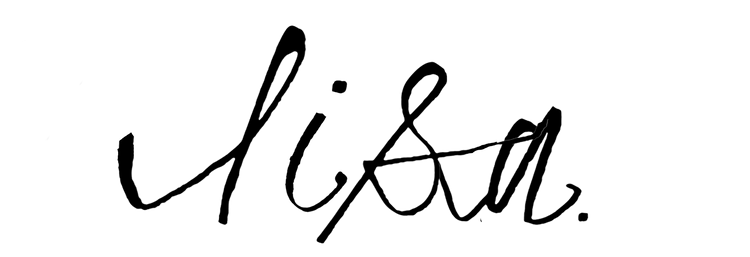So I have a ton of thoughts on this. Most of which go strongly against every single super pretty Instagram motivational poster targeted toward women that I've ever seen.
Is that specific enough for you?
We are sold some bullshit on comparison, especially women and especially artists. Comparison, even social comparison, its modern day evil twin is actually a good thing and if you can harvest it, comparison is a super power.
Here’s why. The first thing to understand about comparison is that there is ZERO chance that your brain will not engage in it in some way. That’s right, zero chance. In fact, studies show that as much as 10% of our thoughts at any given time center around comparisons of some kind. Our brain runs through comparison scenarios with every single new experience. It’s a survival tactic in order to gather information about a new situation, compare that data to other situations in the past and determine how to behave accordingly. Simply put without comparison, our chance for survival would be pretty slim.
However that’s not the kind of comparison we normally discuss these days. It’s easy to point the finger at social media when it comes to social comparison. And I do love to throw rocks at that glass house on the daily, And yes, social media does create the most beautifully ripe field in which to harvest our deepest and most harsh social comparisons. Social media uses some damn good fertilizer.
So let’s talk social comparison for a minute. In 1954, psychologist Leon Festinger developed the theory of social comparison. It is the idea that we determine our own social and personal worth based upon how we compare with others. Now this might sound like it only pertains to one type of comparison, but social comparison feeds into how we are evaluated every single day. Social comparisons are part of performative comparisons. And performative comparisons are what most of our evaluation processes are based upon. Ever take a test? Fill out a college application? Apply for a job? All performance based comparisons. Our value is based upon how we compare to the larger sample or group. Our abilities are ranked in comparison to others. Like all the time. So comparison determines a whole hell of a lot. Best to figure out how to reframe instead of just lying to yourself that you won’t do it or will avoid it. You are already doing it. Pretty glittery motivational poster and all.
Generally we engage in one of two kinds of comparisons. Upward and downward. In upward comparisons we compare ourselves with those who we believe are better than us. A better house, better job, better partner, better kids, better boobs. All that stuff. Downward comparisons engage us in comparing ourselves to those who we feel are less fortunate. Oh I wish I had a better job, but compared to so and so, I’ve got it made. It’s easy to see that downward comparisons would somehow make us feel better about ourselves, but upward comparisons can have an advantage too. If harnessed and framed in a positive light, upward comparisons can be motivating and encourage us to up our game.
Neuroscientists have discovered that upward and downward comparisons correlate with activity in distinctive parts of the brain. Upward comparisons are connected to activity in the dorsolateral prefrontal cortex and the anterior insula. Which is interesting because these areas of the brain are correlated with working memory, switching attention and negative emotional experience. Ouch. Downward comparisons as associated with increased activity in the ventral striatum, the medial orbitofrontal cortex and the ventral anterior cingulate cortex, which connects to the evaluation of personal performance. But if we so often feel like shit after scrolling social media, how can comparison even be good. At all.
Well, here’s the thing. You cannot have one without the other. If you compare yourself often to others, you’ve got a good eye. You are perceptive. You notice, observe, collect, and record. All good skills, and if you are an artist, you have worked really really hard to develop those skills. I can feel like shit about my body sometimes because I have worked really hard to train my eye to see every single bump and vein. Every single one. And I can see them on you too! That keen eye is what makes me an artist. It makes me able to draw the figure, understand anatomy, know what colors are in a shadow and see the world in a million different ways all at once. I fought for that ability. And I wouldn’t trade it for anything in the world.
But the catch is that you don’t get to notice just one thing, The noticing comes with noticing all the things. And this is what must be reconciled. When I think of the comparison as being all of it. The seeing is being able to see all of it. What I want to and what I don’t, I don't get to choose. But what I do get to choose is that I really value the one. It’s what makes me an artist. That comparison is what enables me to talk to anyone, make them feel safe. Let a kid know that I hear them. Help an executive get perspective on what is collapsing communication in their company, know that I can make anything, anything at all with my hands. I’d never trade this. Ever. So if given a choice, yes, I’ll compare myself to every single person on the internet. Every single time. The secret is to see it as a gift. It’s happening anyway.
Use it. Don't shut it down.
For more on COMPARISON listen to JOY IS NOW Episode 30 with Lisa Solomon

Leave a comment